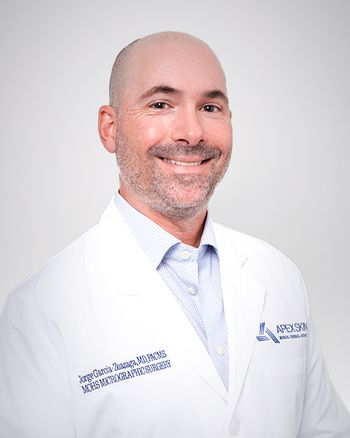
Starting a cosmetic practice
Starting a successful cosmetic dermatology practice requires a systematic approach to everything from networking and staffing to advertising and office decor.
Key Points
San Antonio - When starting a cosmetic dermatology practice, the most effective strategies begin with reaching out to patients and providers closest at hand.
As soon as one has a portfolio of high-quality "before" and "after" patient photos, Sue Ellen Cox, M.D., advises showing it to the physicians in one's area, including family practitioners, OB/GYNs and, particularly, other general dermatologists who may not offer the same cosmetic services your practice does.
"You must network with the people in your locale to let them know what procedures you do and how you differ from what they're doing, so that they have a good referral source.
A marketing portfolio must represent one's own work. Therefore, Dr. Cox advises against using company-supplied photos.
To help develop a portfolio, it's helpful to treat one's staff members and close friends.
"The key: Get permission from patients if you're going to use their photos. Many lawsuits have resulted from physicians not having the correct permission."
This involves specifying exactly where photos will be used, from in-house marketing materials to industry presentations and public forums such as the Internet, Dr. Cox tells Dermatology Times.
Developing an effective marketing plan requires understanding your particular market, she says.
As for specific marketing tools, she says external marketing is one of the least effective avenues.
"If you are going to use print media," Dr. Cox says, "don't choose a journal that's there for a week." Rather, choose one that will sit in one's office or in patients' homes for a month or more.
Overall, Dr. Cox says the Internet provides the strongest promotional punch. To that end, she says cosmetic surgery practices' Web sites should be classy, easy to read and navigate, frequently updated and peppered with key terms patients are likely to search for.
Somewhat surprisingly, Dr. Cox says 55 percent of a patient's decision is driven by visual input, including the appearance of one's office.
Succeeding with a cosmetic surgical practice also requires that everyone in the practice, from physicians to receptionists, share the same vision of what the practice is and what its goals are, she says.
"Once they've walked in the door," she says, "patients should feel that they've made the right decision. The decor should be beautiful, clean and uncluttered."
Other key office accoutrements include eye-catching brochures, bulletin boards, newsletters and displays. Similarly, looping brief slide shows on computer screens in every room provides effective internal advertising, Dr. Cox says.
Furthermore, she says that 38 percent of a patient's treatment decision will come from communication with office staff.
"Probably the most important staff member is the front-office receptionist, who should smile and greet each patient by name, acknowledging one patient at a time," Dr. Cox says.
Monthly meetings allow employees to be a physician's eyes and ears. "We listen to the employees. They're really on the front lines - they understand patient flow and various concerns, and they can make you aware of where sticking points occur in your office," Dr. Cox says.
Keeping patients happy also requires managing their expectations through education.
She says, "Listen to what patients want, listen to why they want it, and then decide if you can give it to them."
Dr. Cox also recommends obtaining accreditation through a body such as the American Association for Ambulatory Health Care (AAAHC).
"AAAHC accreditation assures a certain quality of care and provides benchmarks for achieving it. And it's very nice for advertising," as it communicates a standard of professionalism that inspires patients' confidence, she says.
"In the current regulatory environment," Dr. Cox says, "accreditation is going to become increasingly important."
Disclosure: Dr. Cox reports no relevant financial interests.
For more information:
Newsletter
Like what you’re reading? Subscribe to Dermatology Times for weekly updates on therapies, innovations, and real-world practice tips.












